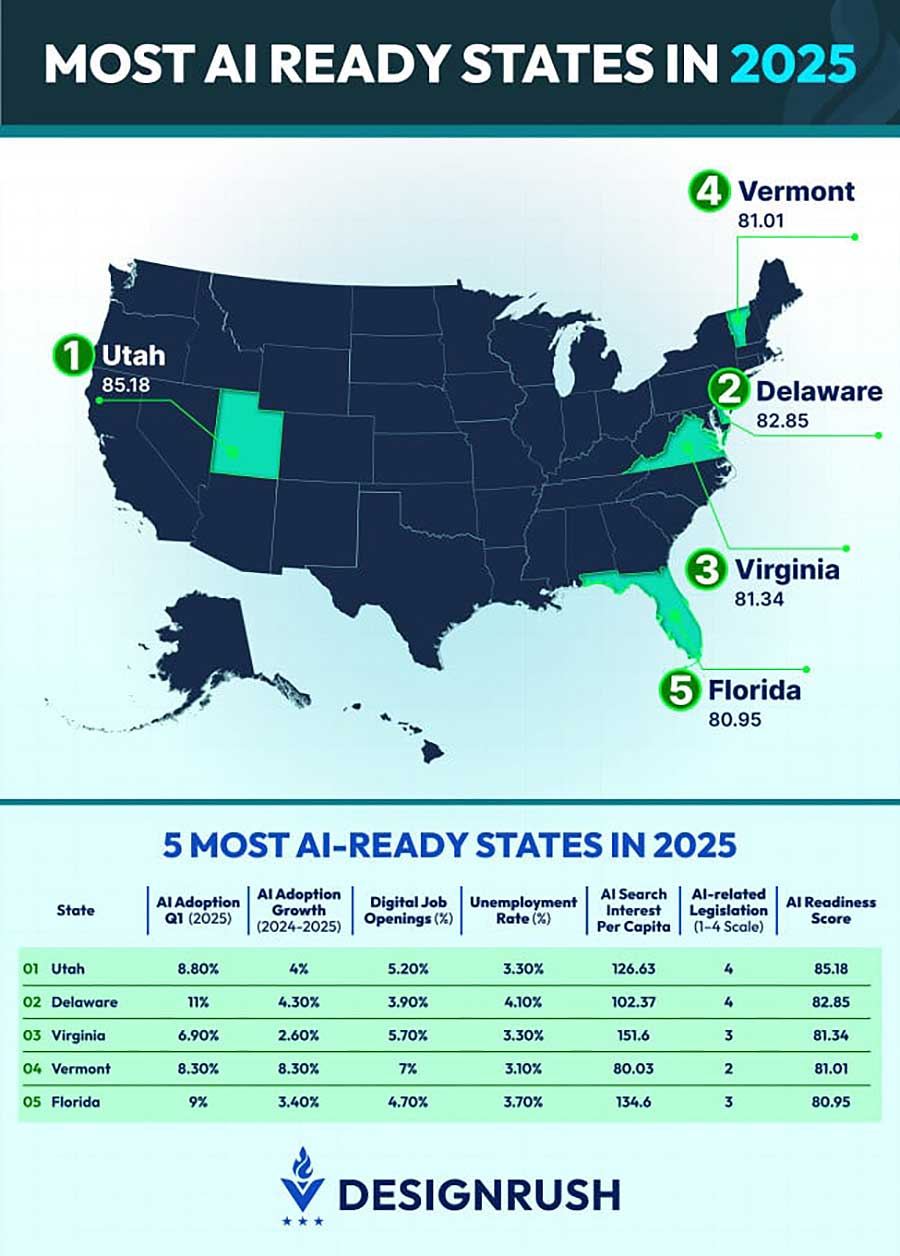 The 2025 AI Readiness Index confirms what many in Utah already see happening: Salt Lake City is leading the country in AI readiness. And Utah ranks No.1 among the U.S. states, too, according to the index, released by DesignRush, a Miami-based Internet marketing service.
The 2025 AI Readiness Index confirms what many in Utah already see happening: Salt Lake City is leading the country in AI readiness. And Utah ranks No.1 among the U.S. states, too, according to the index, released by DesignRush, a Miami-based Internet marketing service.
DesignRush evaluated every state using six key indicators. Utah earned the top spot based on its high ranking in three key areas:
• AI adoption by business and industry reached 8.8 percent in early 2025, representing a 4 percent increase since 2023.
• AI-related Internet searches per capita: Utah reported 126.63 searches, showing that interest in digital tools is high across the state.
• Legislative preparedness: The state received a perfect score of four out of four, which means the policy environment is aligned with AI innovation.
DesignRush report authors said Salt Lake City plays a central role in all of these areas.
“From new startups to public institutions, the region is moving with speed and purpose toward AI adoption,” the study said.
Out of 161,064 businesses in Utah, more than 18,700 say they have used AI or intelligent tools in the past two weeks. That’s one in nine and tops in the U.S. — and a majority of these businesses operate in and around Salt Lake City. This includes retail stores, logistics companies, financial firms and medical providers. What they share is a practical, daily use of digital to solve real problems, the study said.
DesignRush also found AI use isn’t limited to large corporations. Small and mid-sized businesses are adopting automation and smart systems at scale.
According to the Bureau of Labor Statistics, Salt Lake City added more than 19,000 jobs over the past 12 months and the concentration of these jobs is in the industries most affected by digital transformation. The industries leading the digital-tool-driven job growth include health and education, construction, information services, manufacturing and finance.
However, some jobs are quietly disappearing and the DesignRush study linked those jobs to industries where digital tools may take over positions. These include professional and business services, leisure and hospitality, and other services like beauty salons and repair shops.
“The sectors affected tend to rely on roles ripe for automation: office assistants, call center workers, receptionists and more,” the study said. “As AI tools become more affordable and accessible, companies are quietly scaling back human labor in favor of smart solutions.”
Study authors concluded that this shows Salt Lake City “is not just weathering change but actively adapting to it. The local economy is expanding while integrating digital transformation.”
Utah’s volume of AI-related online searches ranked among the highest in the nation.
“This tells a bigger story: People aren’t just curious; they’re actively engaging,” the study said. “They want to understand how these technologies affect their work, their cities and their future.”
The research writers concluded, “Salt Lake City is setting a new national standard. It now represents one of the clearest models for how a city can adapt to technology while creating opportunity. This makes the city a national example in a way that is practical, balanced and scalable.”







